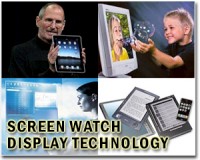 |
San Francisco (AFP) March 7, 2011 - A study released on Monday indicated that people in the United States are losing sleep over their gadgets. All but five percent of people surveyed as part of a National Sleep Foundation poll said they played videogames, watched television, or used smartphones or laptop computers in the hour before going to bed. "This study reveals that light-emitting screens are in heavy use within the pivotal hour before sleep," said doctor Charles Czeisler of Harvard Medical School. "Invasion of such alerting technologies into the bedroom may contribute to the high proportion of respondents who reported that they routinely get less sleep than they need." Being bathed in the glow of monitors or handset screens suppresses the release of sleep-promoting hormone melatonin and enhances alertness, making it more difficult to sleep, according to Czeisler. The poll showed that 43 percent of people ages 13 to 64 felt they rarely or never got a decent night's sleep during the work week. Older people were more inclined to watch television while younger people were more likely to opt for computers, smartphones or videogames, according to the survey. "Over the last 50 years, we've seen how television viewing has grown to be a near constant before bed, and now we are seeing new information technologies such as laptops, cell phones, videogames and music devices rapidly gaining the same status," said Lauren Hale of Stony Brook University Medical Center. "The higher use of these potentially more sleep-disruptive technologies among younger generations may have serious consequences for physical health, cognitive development and other measures of wellbeing." Researchers suspected that using smartphones, computers and video game consoles was more stimulating than passively watching television and would make it even harder for people to fall asleep. Sleep-deprived gadget users were using caffeine and naps to cope with fatigue, according to the poll.
earlier related report The latest hires at the fast-growing news and opinion website were unveiled as AOL's $315 million acquisition of The Huffington Post formally closed. "One of the Huffington Post Media Group's main goals is to deliver engaging and high-impact journalism, and these hires are an exciting addition to our reporting team," The Huffington Post founder Arianna Huffington said. "These new hires, which are only the beginning, demonstrate our commitment to great journalism," AOL chairman and chief executive Tim Armstrong said in a statement. The latest hires boost The Huffington's Post staff to around 150 reporters and editors. With the closing of the deal, Arianna Huffington takes over as president and editor-in-chief of The Huffington Post Media Group, which will preside over all AOL Media and AOL Local properties. The acquisition of The Huffington Post was the latest high-profile media buy by Armstrong, the former Google executive who was brought in by AOL two years ago in an attempt to turn around a company whose name has become synonymous with the dotcom era's excesses. In September, AOL purchased TechCrunch, a leading Silicon Valley technology blog. Other AOL properties include Engadget, Patch, Moviefone, MapQuest, Black Voices, PopEater, AOL Music, AOL Latino, AutoBlog and StyleList. AOL, formerly known as America Online, fused with Time Warner in 2001 at the height of the dotcom boom in what is considered one of the most disastrous mergers ever. It was spun off by Time Warner in December into an independent company. AOL shares were down 2.24 percent at $19.60 in early trading on Wall Street on Monday.
Share This Article With Planet Earth
Related Links Space Technology News - Applications and Research
 Skype to introduce ads
Skype to introduce adsWashington (AFP) March 7, 2011 Skype, the hugely popular free Internet communications service, announced plans Monday to introduce advertising as it seeks to boost revenue ahead of going public. Skype, which bypasses the standard telephone network by channeling voice, video and text conversations over the Web, said the ads will appear only in Britain, Germany and the United States for now. The introduction of advertis ... read more |
|
| The content herein, unless otherwise known to be public domain, are Copyright 1995-2010 - SpaceDaily. AFP and UPI Wire Stories are copyright Agence France-Presse and United Press International. ESA Portal Reports are copyright European Space Agency. All NASA sourced material is public domain. Additional copyrights may apply in whole or part to other bona fide parties. Advertising does not imply endorsement,agreement or approval of any opinions, statements or information provided by SpaceDaily on any Web page published or hosted by SpaceDaily. Privacy Statement |